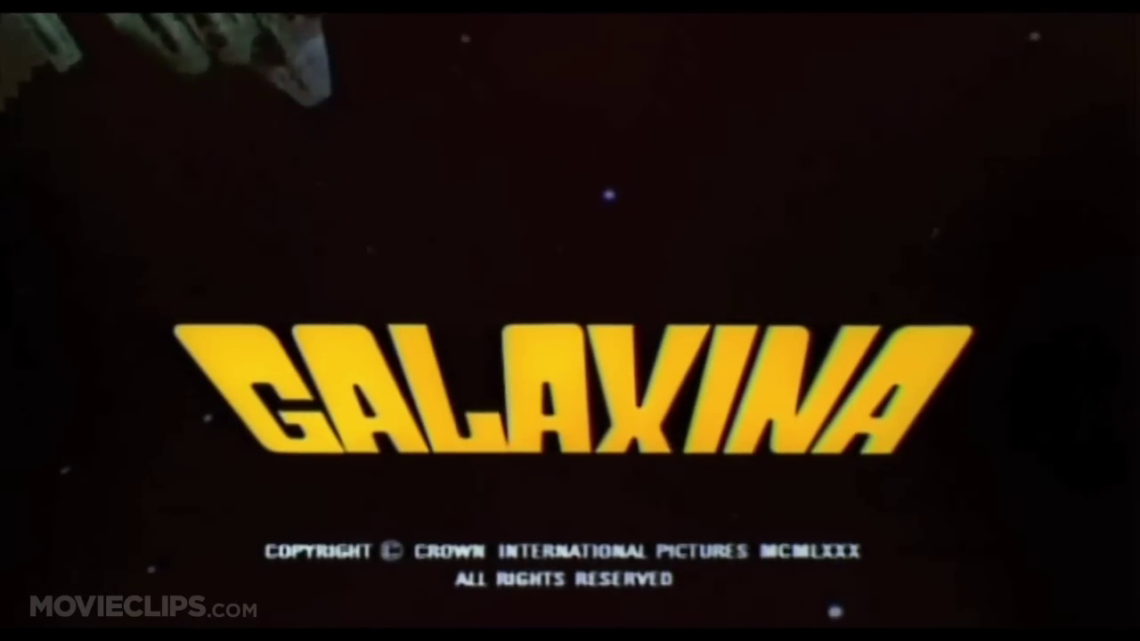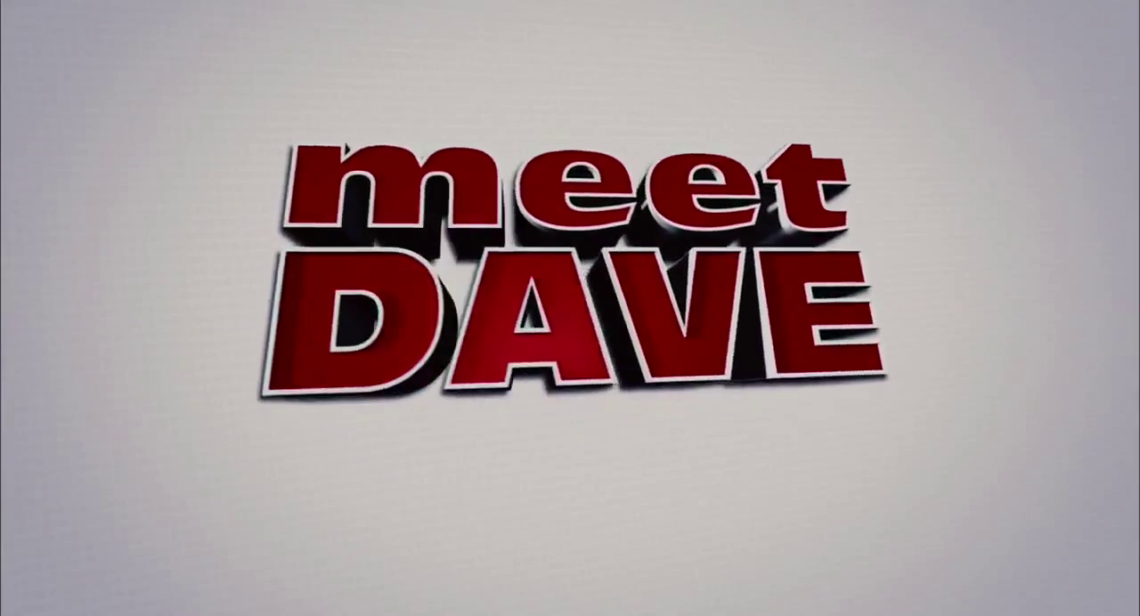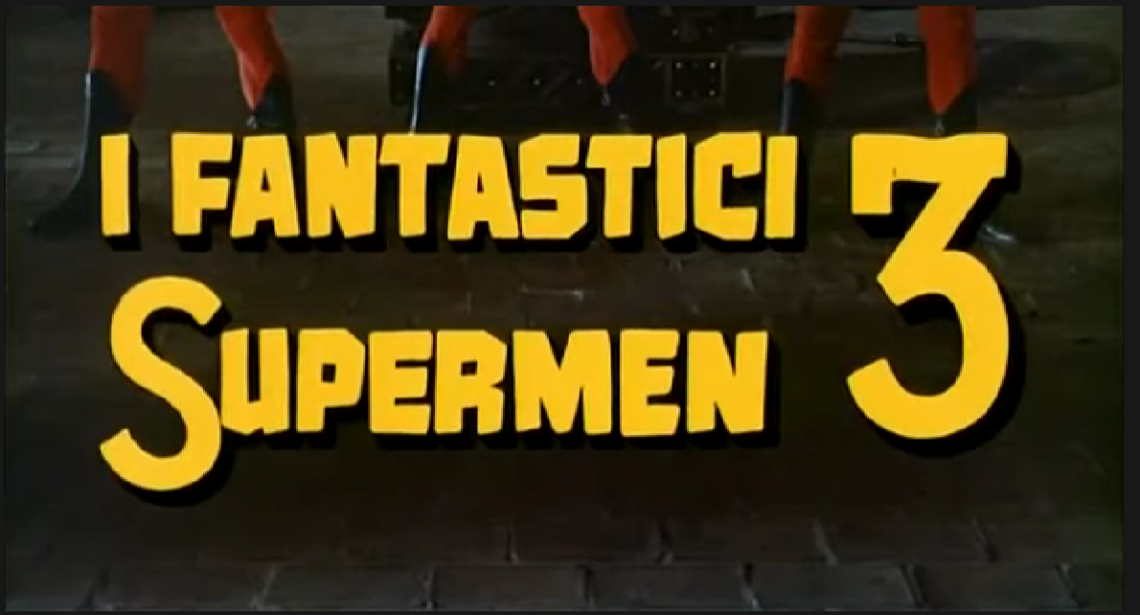-
#644 – My Super Ex-Girlfriend (2006)
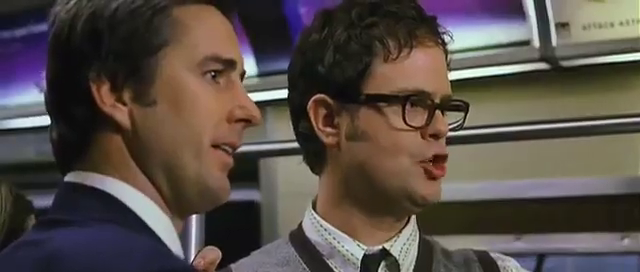
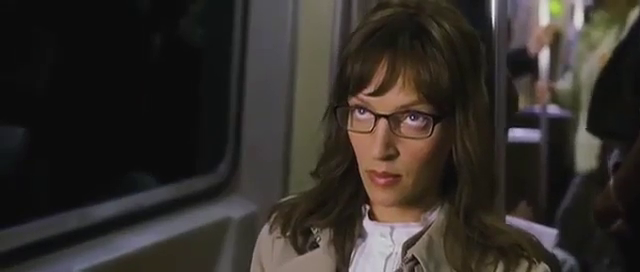
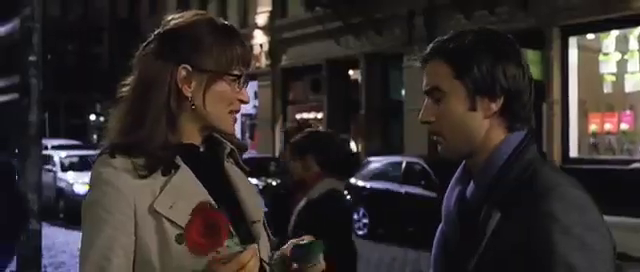
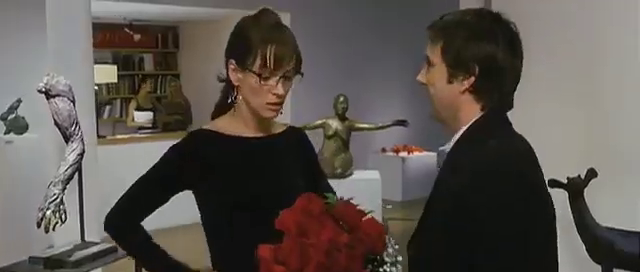
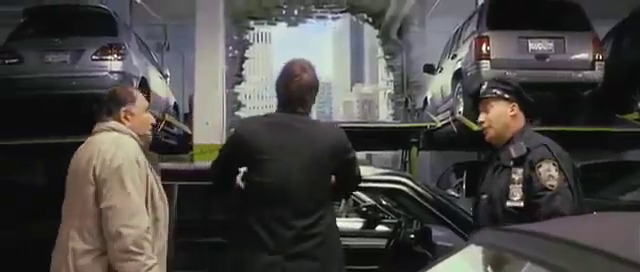
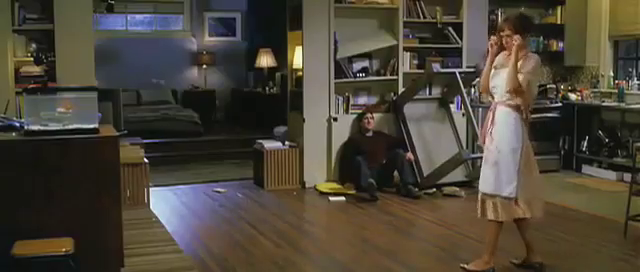
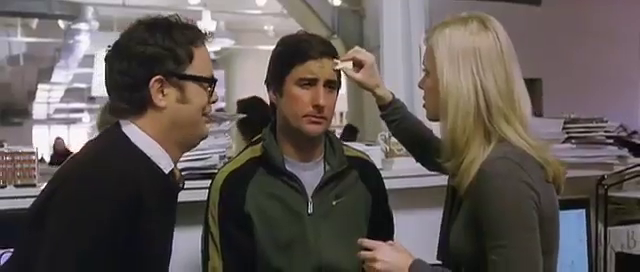
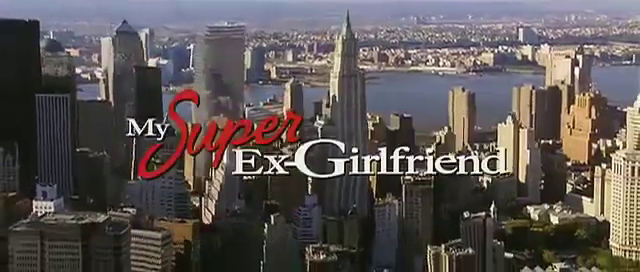
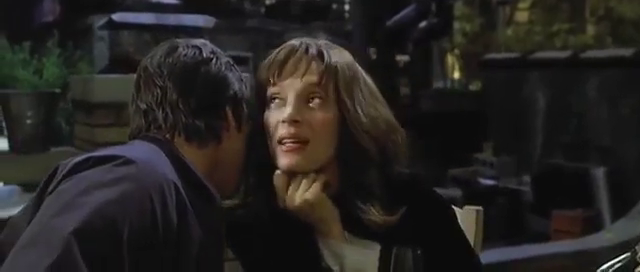
My Super Ex-Girlfriend (2006)
Film review #644
Director: Ivan Reitman
SYNOPSIS: Matthew Saunders starts dating Jenny Johnson, and learns that she is the superhero G-Girl. When he decides to break up with her, he must contend with the wrath of a superhero, while a supervillain schemes to take her powers…
THOUGHTS/ANALYSIS: My Super Ex-Girlfriend is a 2006 sci-fi comedy film. Matthew Saunders starts dated jenny Johnson, a woman he meets on the subway, and finds out that she is the superhero G-Girl. When he decides to break up with her, she decides to get revenge on him and make his life a living hell. The premise of the film is simple enough to grasp and offers the potential for some comedic moments. The trouble is that the film manages one or two of them and doesn’t take full advantage of it to take it anywhere interesting. It relies on crude humour that hasn’t really aged well, and also doesn’t really push any boundaries. One of the reasons for this is probably the PG-13 rating the film obviously wanted, and so anything that might have pushed said boundaries is obviously sidelined in the interest of playing it safe. Even so, there’s still plenty you could have done within the rating to make it more interesting, but due to a shoddy script devoid of imagination, and poor pacing, in which the ‘break up’ only happens half way through the film and leaves no time for anything substantial to happen before it has to set the stage for a resolution finale.
The one thing of note about the characters is that none of them are very likable: they’re all fairly flawed and annoying in some way. Uma Thurman is the stand out role and plays her part as the super-hero and nerdy neurotic alter-ego well, although a a lot of very cliché and unhinged traits are just dumped onto her character. Matthew as the male lead barely registers any interest, and Eddie Izzard as the villain is very half-baked. There’s also the distinct feeling that by the end of the film and everything is “resolved,” that no one has really learned anything. Overall, there’s certainly potential in the concept, but an obsession with a PG-13 rating and playing it safe leaves you thinking you could imagine much more interesting possibilities than what My Super Ex-Girlfriend actually gives you. Unlikeable characters, a fairly empty screenplay, and lack of many stand-out comedic moments leaves very little impression, despite Uma Thurman’s solid portrayal of the role she is given.
-
#613 – Galaxina (1980)
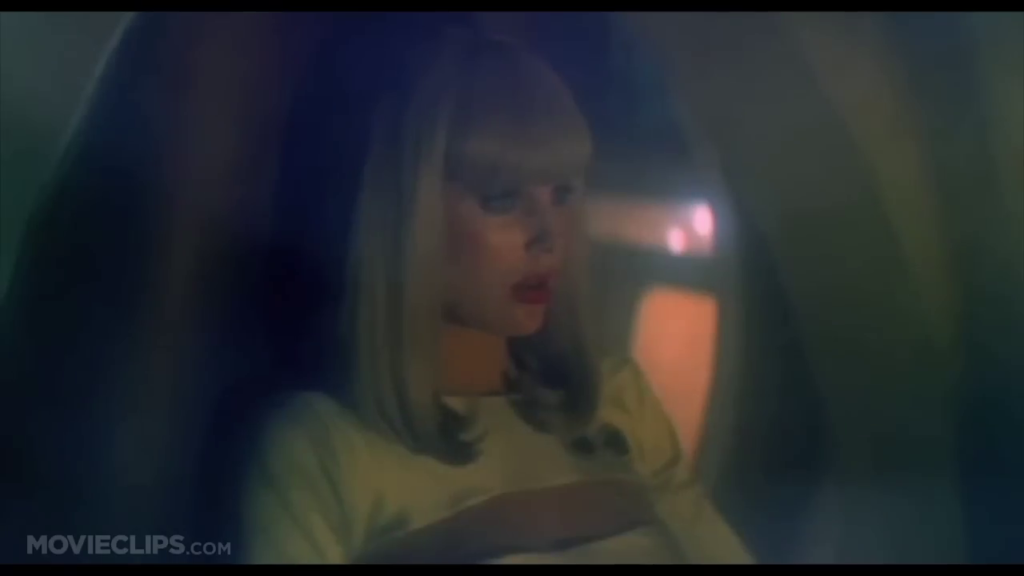
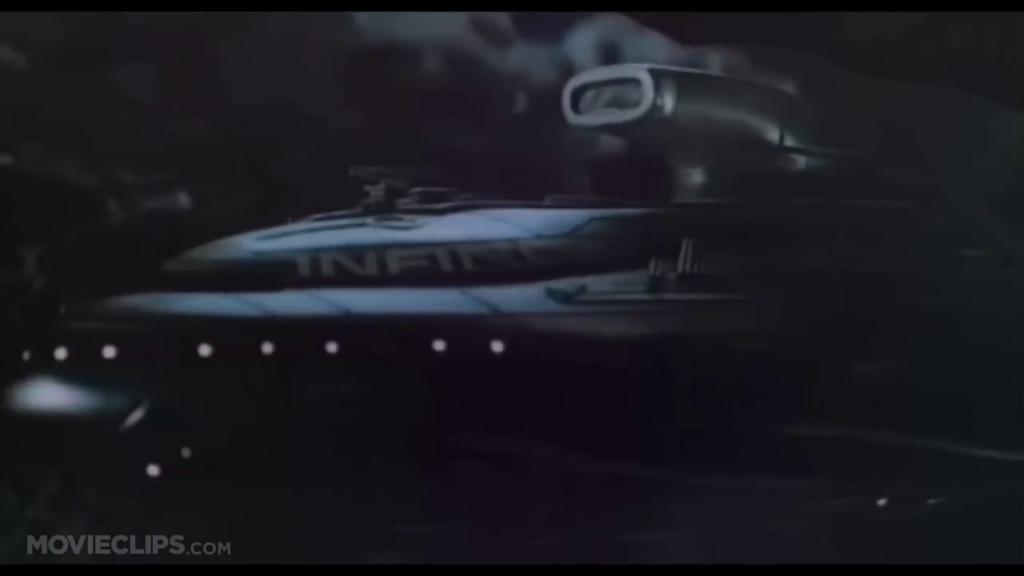
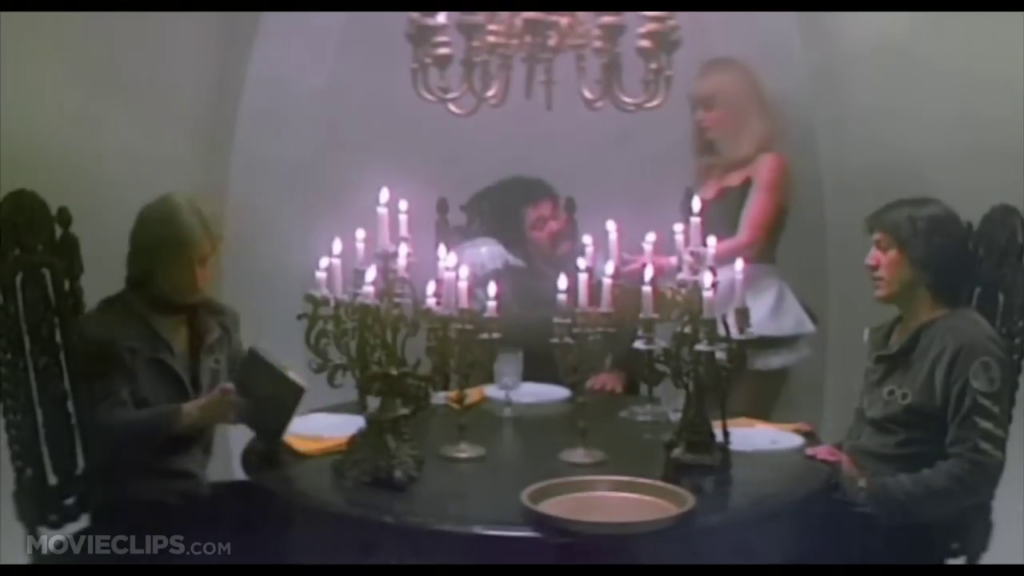
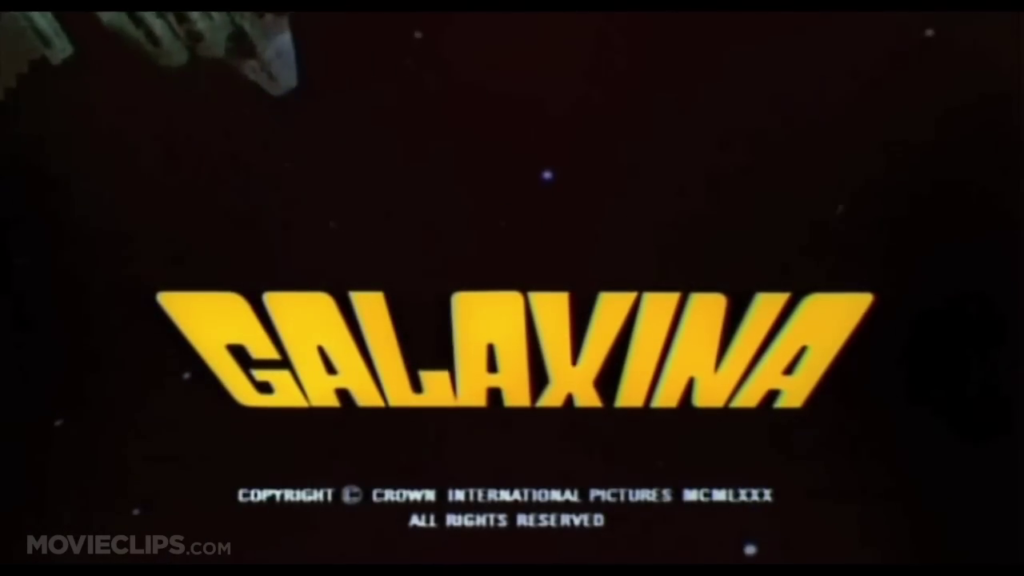
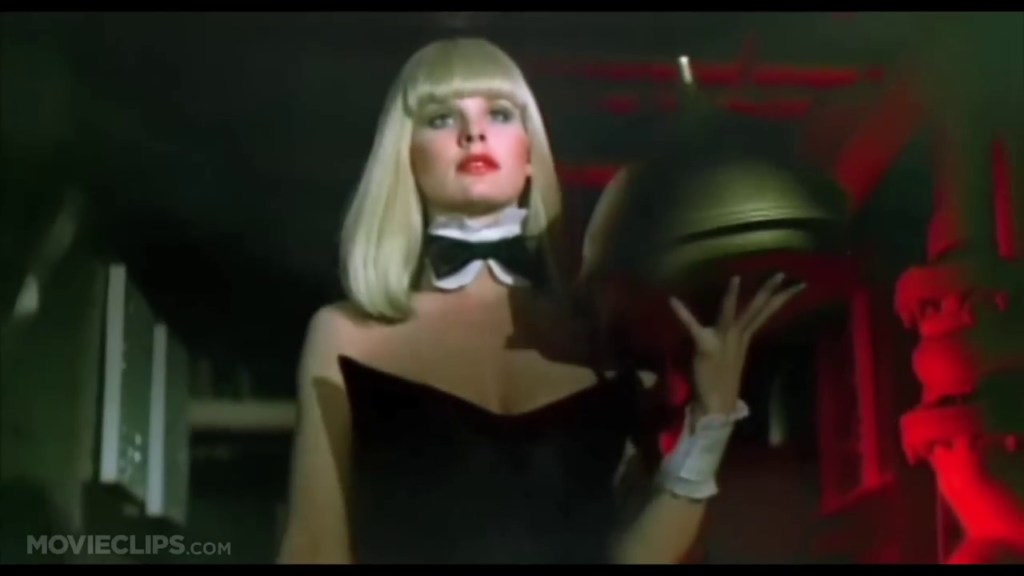
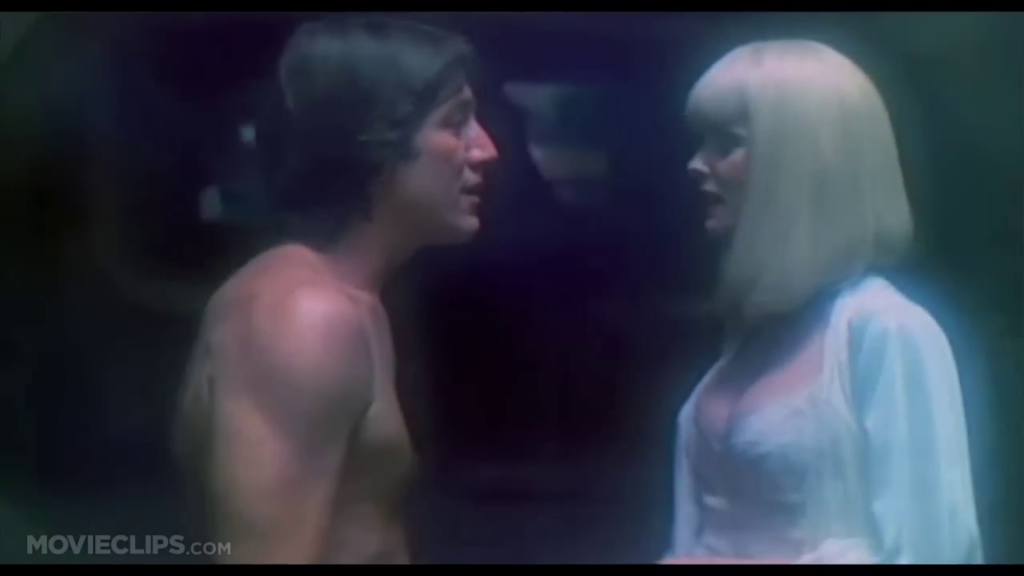
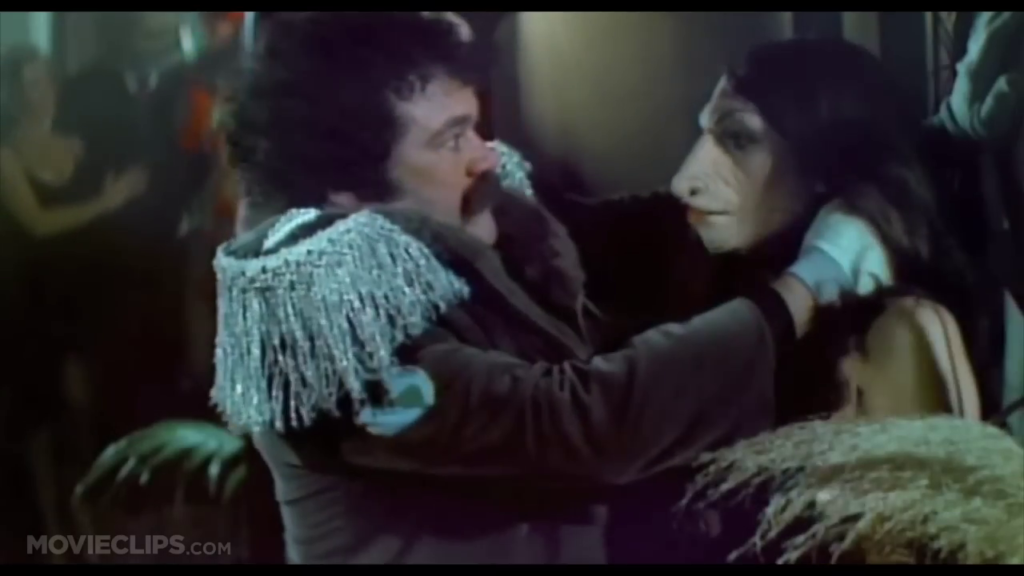
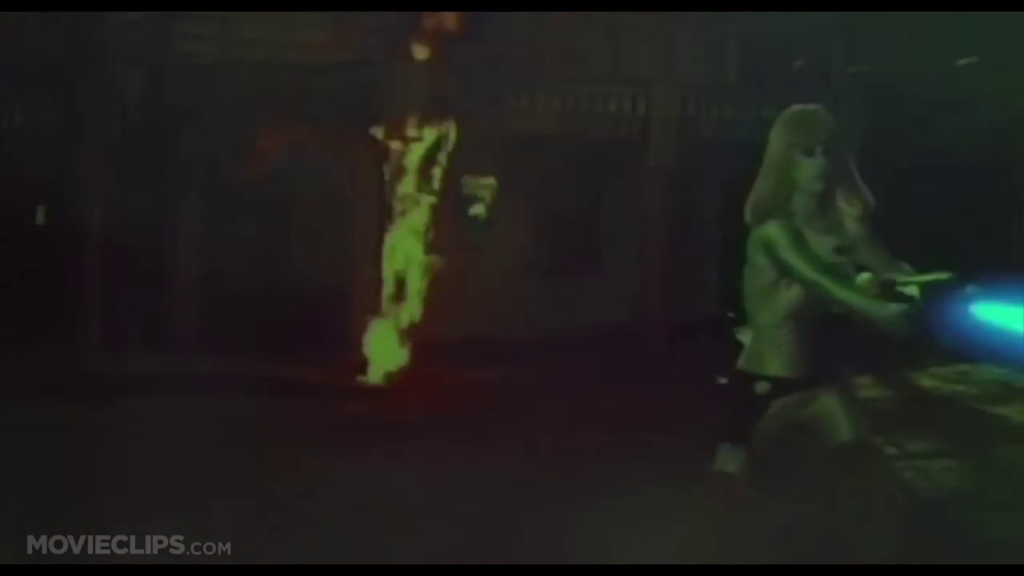
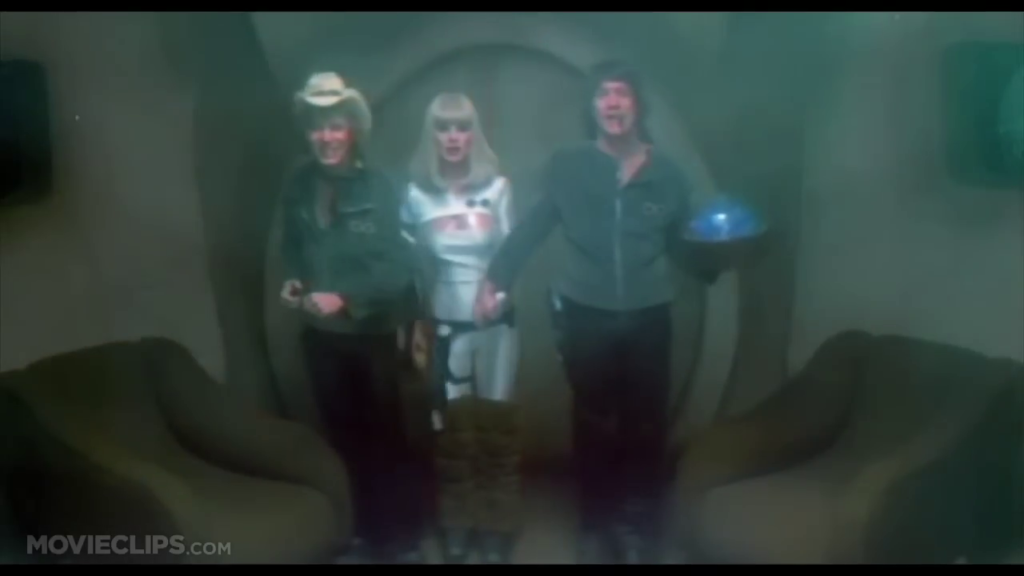
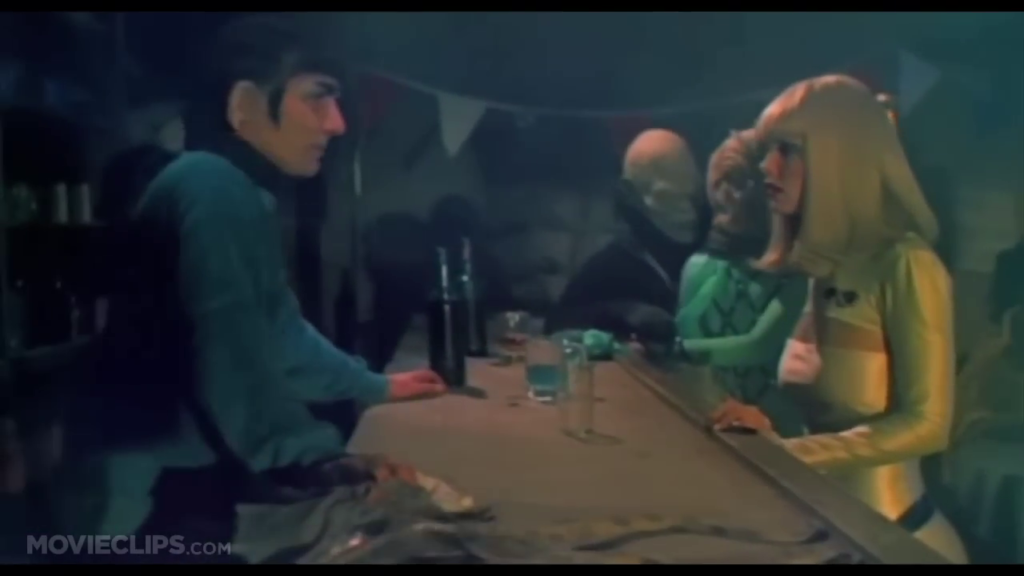
Galaxina (1980)
Film review #613
Director: William Sachs
SYNOPSIS: In the year 3008, the police space cruiser Infinity is given a mission to acquire a mysterious energy source known only as the “Blue Star.” The crew, including female robot Galaxina, set a course for Altair One, a trip which will take them twenty seven years in cryosleep…
THOUGHTS/ANALYSIS: Galaxina is a 1980 sci-fi parody film. Set in the year 3008, the space police cruiser Infinity is patrolling the edges of known space when its inept crew are contacted with a mission: to retrieve a rock known only as the “blue star,” which is a source of great energy. Sensing a chance at riches and glory, the crew embark on the trip, aided by their female android Galaxina. Being a parody film, the story isn’t the most important aspect of the experience, and is mostly an amalgamation of familiar tropes. usually this eases viewers in so they don’t get bogged down in details, and gives the comedy plenty to lampoon, but here, the problems with the plot structure and pacing severely hamper that effort. The first half of the film is essentially just empty space, where we are introduced to a crew of unlikeable characters that do little other than bicker and moan, while throwing out the occasional crass joke. For forty minutes this continues until we finally get a plot: the crew are asked to go and fetch the mysterious “blue star” rock, and have to spend twenty seven years in cryosleep to reach the planet of Altair One. While the crew is in stasis, Galaxina learns to speak and modify herself to be more human, and so is actually able to be a character of some substance. The second half of the film decides to add some parody of Western films into the mix, diluting the already weak sense of direction and purpose has even further. That said, the film does find it’s footing a bit more in the second half, with more direct parodies such as the pointy eared bartender “Mr. Spot,” and a motorcycle cult/gang who worship their mythical God “Harley David-Son.” By this point though, there’s not enough time for the film to really accomplish anything of note, and still most of the jokes just fail to land.
The film takes on the big sci-fi hitters, such as Star Trek, Star Wars, Alien and 2001, parodying them all at various points. I feel like the film is aimed at a sci-fi audience rather than a general one, but the jokes just don’t go deep enough for that purpose. The choir sound effect whenever someone mentions the “blue star” is the only time the film breaks the fourth wall, and again it just feels like a joke thrown in there because the more types of humour the film can cram in, the better (spoiler: it’s not better). You can overlook the barebones production and effect because that’s part of the old sci-fi experience, but that said, the practical models of the ships are fairly nice. As mentioned, the characters are all fairly unlikeable, even Thor, who provides Galaxina’s love interest, and perhaps is meant to be the most “normal” of the crew, is devoid of any real personality other than being horny. Galaxina has some idea of what it wants to be, but the poor pacing makes it too easy for viewers to get lost. The humour and jokes constantly miss their landing, and an overreliance on crude humour ages the film poorly too. The film finds some footing eventually, but at that point, it’s too late to redeem it, and it just doesn’t achieve anything remarkable. There’s much better sci-fi parodies out there, and this one should probably be left on the fringes of known space.
-
#598 – Meet Dave (2008)
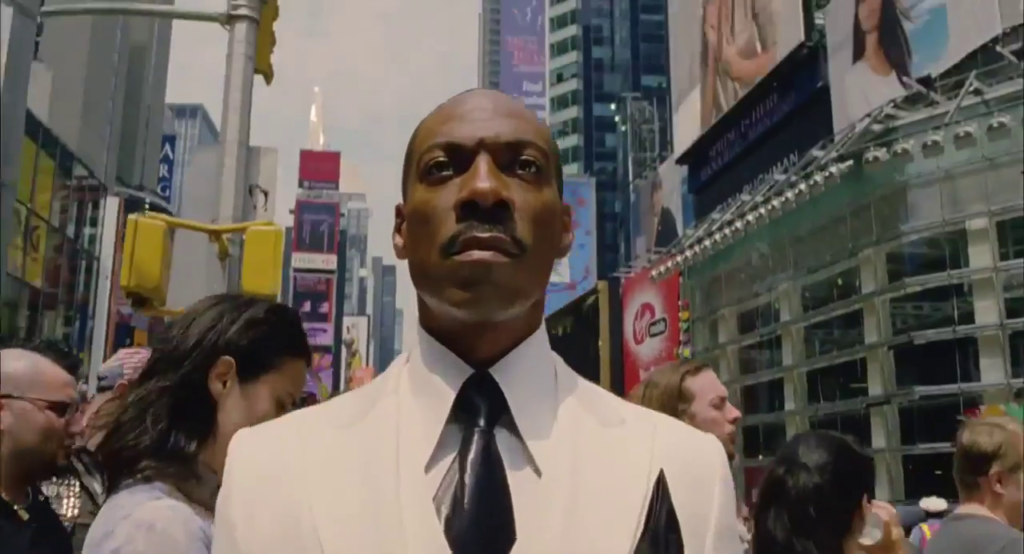
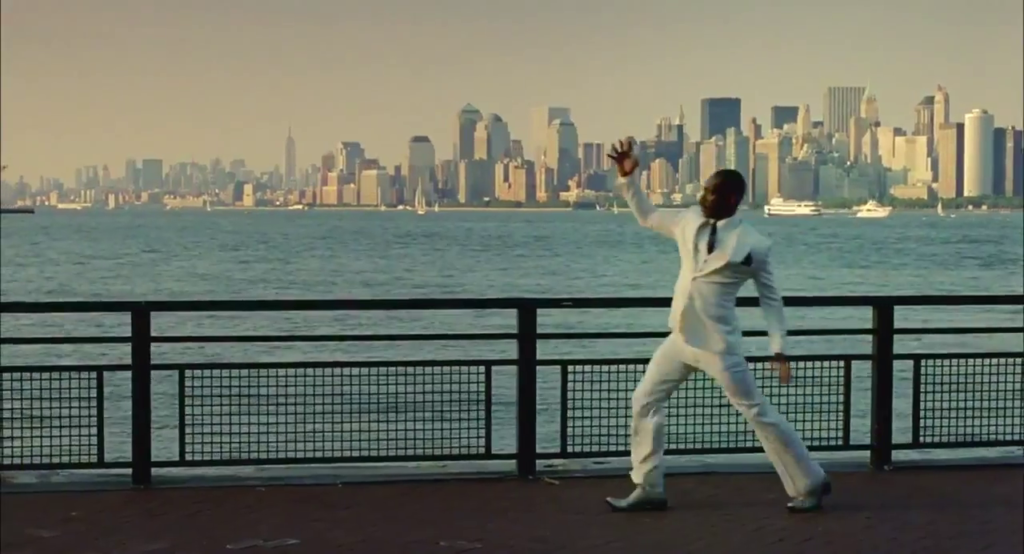
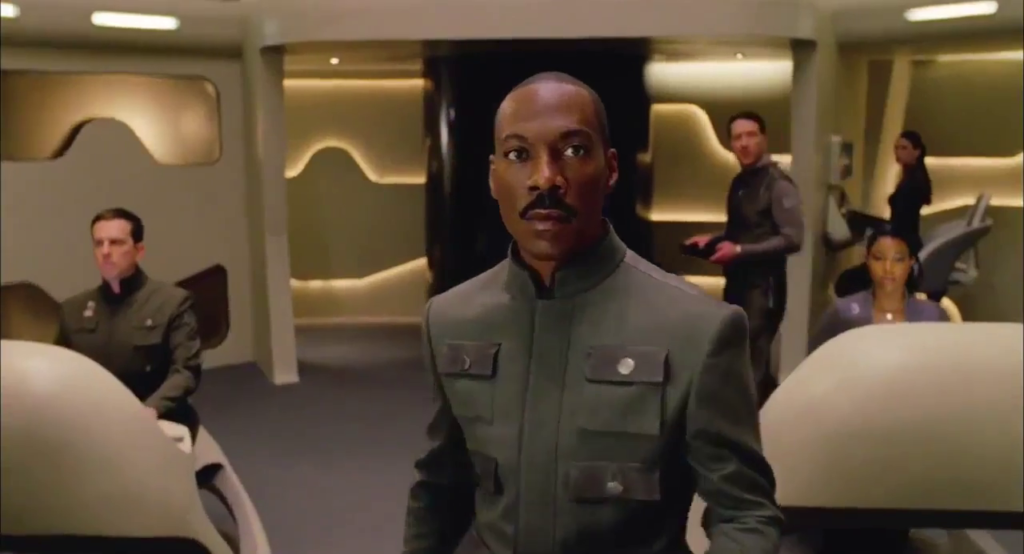
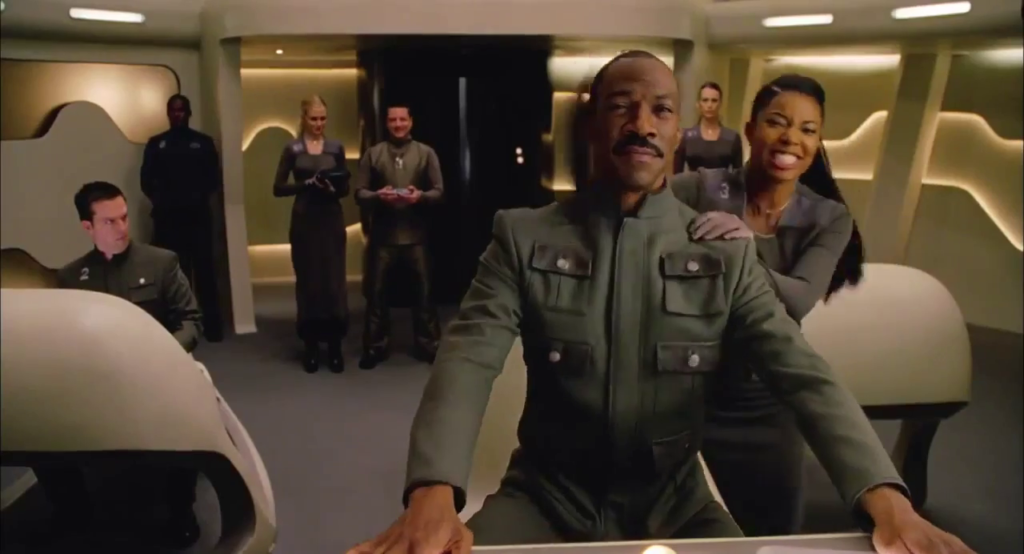
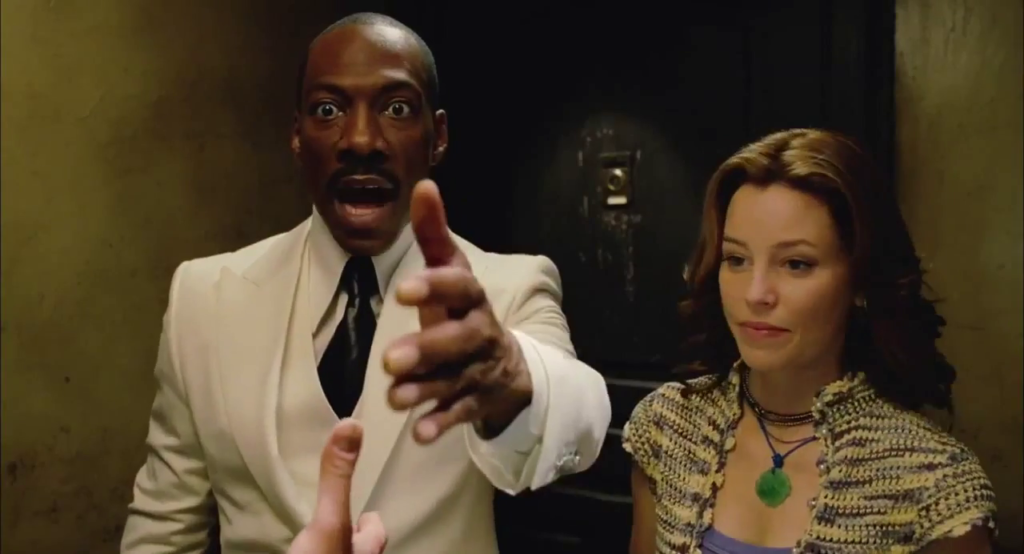
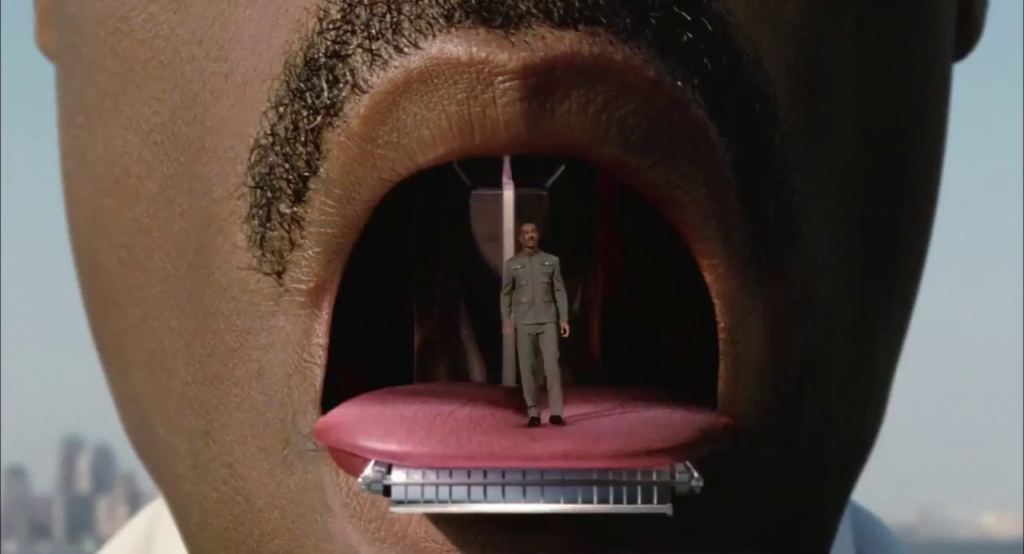
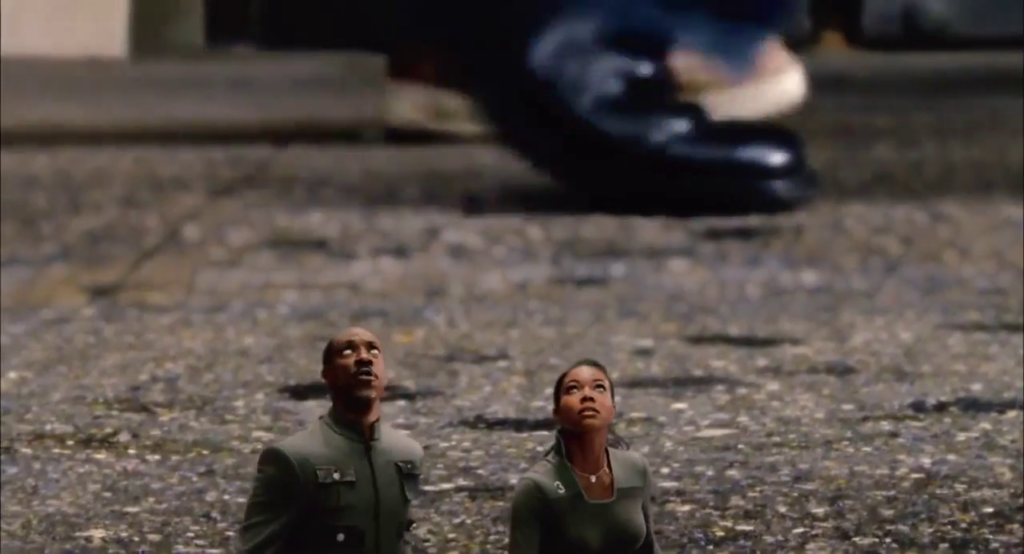
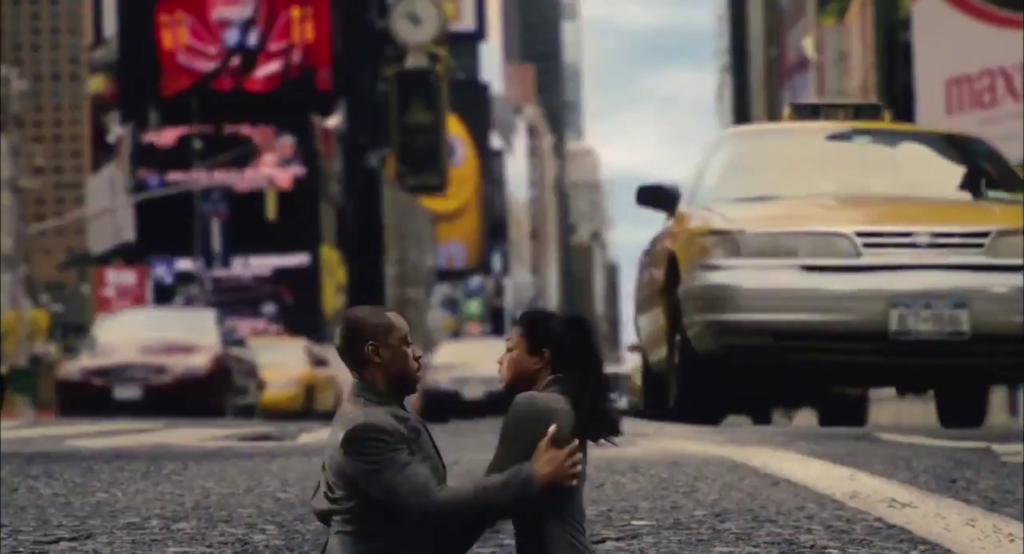
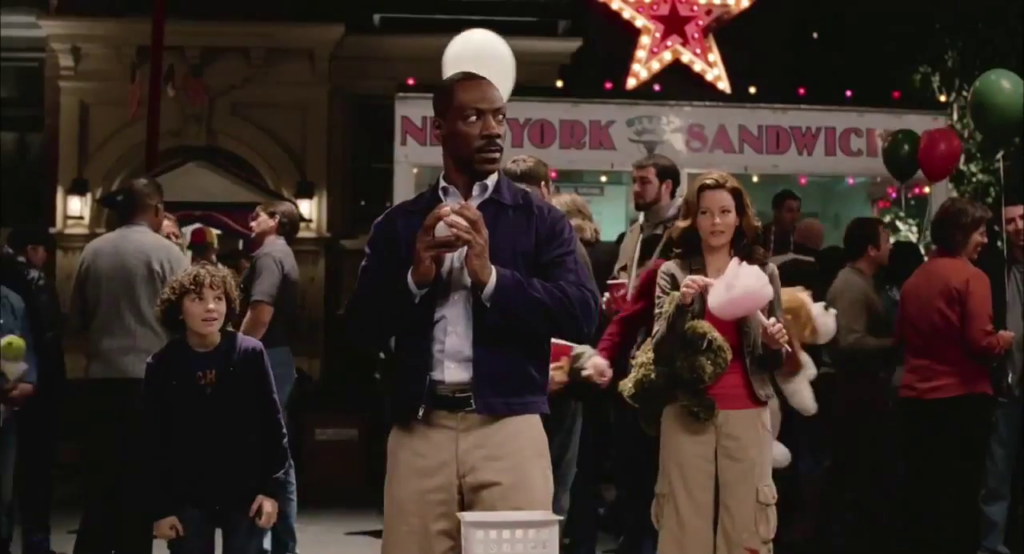
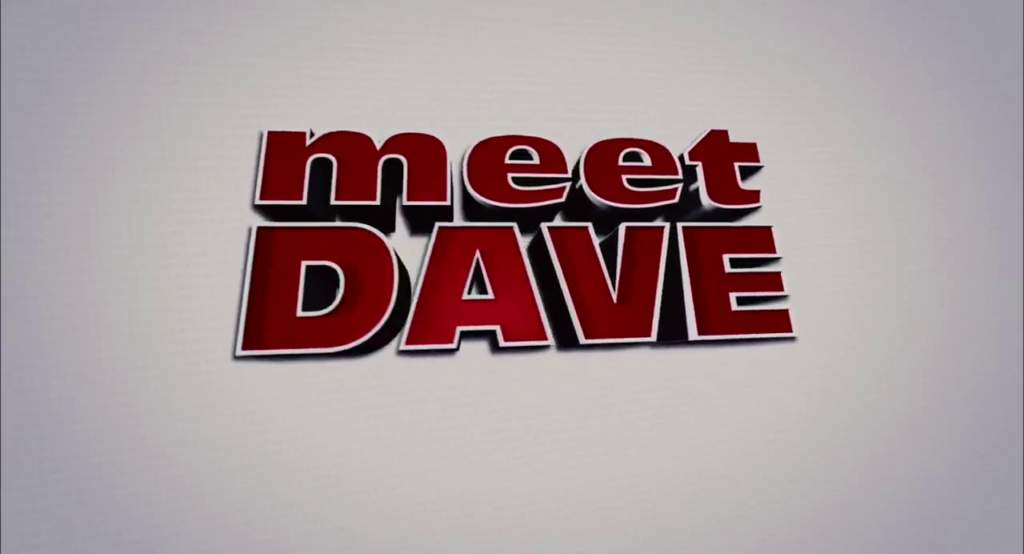
Meet Dave (2008)
Film review #598
Director: Brian Robbins
SYNOPSIS: An alien spacecraft in the shape of a human lands on Earth in search of a device that landed months earlier, that will drain the salt from the Earth’s oceans. Piloted by a crew of smaller humans (including the Captain who is the spitting image of their ship), they attempt to blend in with the crowds of New York City. Befriending a single Mother named Gina, the aliens learn about Earth and grow to admire it’s population. But as this threatens their mission to save their own planet at the expense of earth, not everyone is happy with this…
THOUGHTS/ANALYSIS: Meet Dave is a 2008 sci-fi comedy film starring Eddie Murphy. The film begins with a meteor falling to Earth and being found by a young boy. A few months later, a spaceship in the shape of a humanoid falls to Earth to look for the meteor, which is in fact a device to drain the Earth’s oceans of it’s salt. The ship is piloted by a crew of tiny humanoid aliens, including the Captain, whose image the ship is apparently based on, and the ship, attempting to blend in as a human, heads around New York City to find the meteor so that the aliens may save their own planet. Meeting Gina, a single Mother who accidentally hits “Dave” (as the crew refer to themselves), with her car, the two strike up a friendship and as the Captain learns more about the Earth, the less he is willing to sacrifice it to save his won world. The story is a very predictable affair, jumping from set piece to set piece that are each familiar and well worn in similar movies. Everything also feels very cartoon-ish, and unable to develop any depth. Gina’s friendship with Dave never expresses something more profound; in part due to her scatter-brained character, in part because I think the film maybe wanted a romantic element to it, but it never goes in that direction either. This is compounded by another issue I will mention later. There also just doesn’t seem to be any direction to the plot at all: sure, the aim is to recover this meteor, but it never feels like that is the primary concern. Even when it is recovered, the film just carries on doing things which don’t further the story or deepen the character’s relationships.
A lot of the film’s issues undoubtedly stem from the film being passed around a lot of different writers before it was finalised. Apparently, the film originally was going to be a bit more adult-oriented, but nowhere is this evident in the final version, which seems to just had every element neutered by the chain of writers that seem to have imagined the film for different audiences. Again, this leads to the film avoiding any sense of depth at any point, as the script tries to meet itself half-way at every possible point. The film is unable to create a significant connection between Dave and Gina, it resolves Josh’s “bully” problem in one quick scene, and the ending that romantically links Gina and her neighbour is something that more or less comes out of nowhere: there’s one brief scene prior to the ending that hints at a romantic connection, but it in no way builds itself up to be one of the take-aways of the film. We also know next to nothing about these aliens home world, culture or anything of the sort, which makes it difficult to understand just what they are getting from their experiences on Earth.
I suppose if you want a positive from this film, Eddie Murphy works well in the lead, given a fair amount of space to be his animated self. It’s just a shame the script doesn’t offer him much more. Gina (portrayed by Elizabeth Banks) is again animated and energetic, but her spritely aloofness renders her character a caricature unable of fathoming any emotional depth. Number Two as the villain is bland, ands again, because we nothing about these character’s backgrounds, it makes it difficult for them to stand out. Kevin Hart’s role as a kind of cutaway slapstick character is pointless: mostly because one; Eddie Murphy’s character has that role, and overshadows anything Hart does. Two, he clearly has no creative room to do anything interesting other than just scream a bit. If this was a more adult-oriented film, then maybe he could cut some more significant and risqué, but as it stands, he barely has anything to do. Production values are also fairly sloppy with some atrocious greenscreen effects for the time.
Eddie Murphy has been quoted as saying his role in Meet Dave is among the worst he has been in. It’s hard to disagree with that, although I don’t think it’s really his fault: the script has no direction, depth, or any idea who it’s aimed at, thanks to being shredded and blended by a mix of writer’s that results in a middle-of-the-road venture that doesn’t even try to stretch itself beyond that centre. It’s no offensively awful in any way, it’s just bad in the sense it’s unoriginal and uninspired, opting for safe, well-tested jokes and scenarios, ultimately wasting the talent it has on board.
-
#552 – Marching Out of Time (1993)
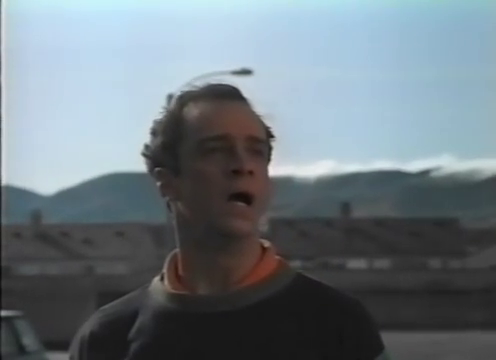
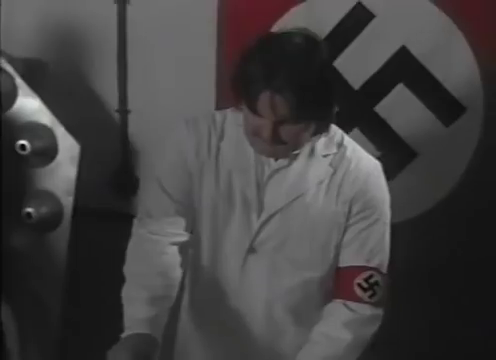

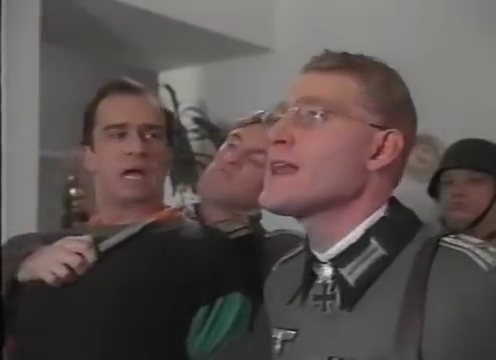


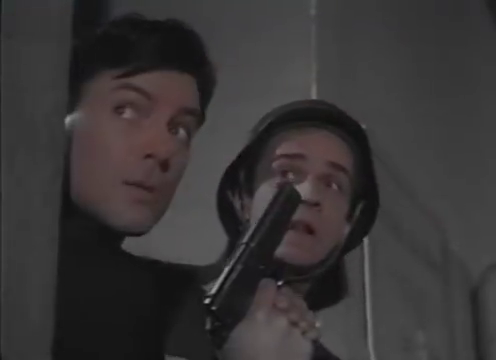
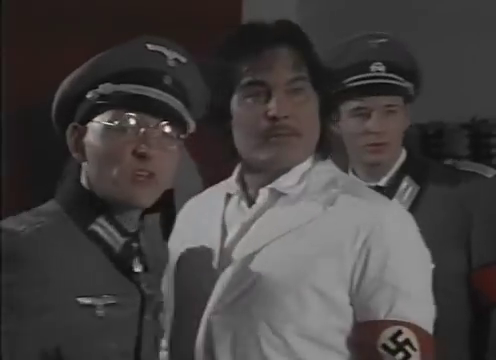
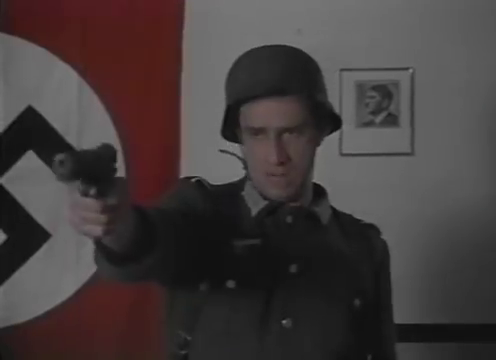
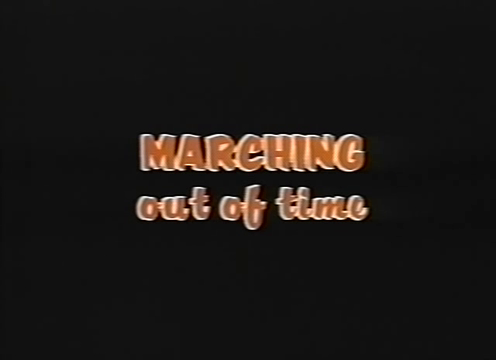
Marching Out of Time (1993)
Film review #552
Director: Anton Vassil
SYNOPSIS: Fred Johnson is constantly hearing noises from his neighbour’s house, and is determined to find out the cause of them, much to his family’s annoyance. It turns out his neighbour is conducting experiments in teleportation. However, his experiments seem to interfere with a similar Nazi experiment in 1942 to transport troops to England, and instead they emerge in the teleportation device in suburban U.S. Fred and his neighbour must stop the Nazis from returning to 1942 with all the information they have gathered about all the mistakes that cost them the war, and rewriting history to make themselves the victors…
THOUGHTS/ANALYSIS: Marching Out of Time (also known by the debatably better title, Back to the Fuehrer) is a 1993 sci-fi comedy film. The film is set in the suburbs of the U.S., where Fred Johnson is becoming obsessed with noises coming from his neighbours house, much to his family’s annoyance. He breaks into his neighbour’s house and discovers Dr. Memo, his neighbour, is working on a teleportation device made from a pair of fridges. Unfortunately, the experiment goes wrong, and interferes with a similar experiment from 1942, which involved attempting to transport Nazi troops from France to England. The result being that the Nazis, led by von Konst, arrive not in England, but in Dr. Memo’s basement in the 1993 U.S. learning about this, they change their mission, and gather historical information about all the mistakes the Nazis made that cost them the war, and aim to return to 1942 with that information to ensure that they are not made again, ultimately winning the war. The stakes are raised and Frank, Dr. Memo, and a low-level cop must fight to prevent the Nazis changing the course of history. The film is a comedy film so everything is all a bit slapstick and silly. It definitely feels like Back to the Future, but instead of Biff Tannen trying to change history, it’s Nazis. The story is fairly linear and doesn’t really build up to anything, so it’s just an excuse for a bunch of silly scenarios and slapstick violence. There is one scene in the middle of the film in which the serious repercussions of the films events are highlighted, but that’s the only one. There’s other typical scenes like the Nazis “disguising” themselves in tie dye shirts and exploring the local area to “blend in,” but that doesn’t really go anywhere, or provide any funny situations. There’s not much laugh-out-loud comedic moments, I think it’s humour is more situated in the whole ridiculous scenario, and Fred being the last person on earth who should be stopping a Nazi invasion. Also, I guess this is technically a Christmas movie, as Fred is supposed to be going away with his family for the holidays, but stays behind to deal with his neighbour. However, this is the only real reference to Christmas in the film.
In terms of the characters, Fred Johnson is a typical suburban Dad, and a typical comedic lead: one which you’ll feel like you’ve seen in a movie before (but definitely haven’t, because the actor didn’t appear in any films before or after this). His family are tormented by his nosiness and whining, and you do wonder why they put up with him. Dr. Memo is the typical “mad scientist,” and von Konst is portrayed like every nearly every Nazi officer you’ve seen on film before. the acting isn’t bad at all, and the stereotypical characters have a familiarity to them that allows viewers to focus more on the comedic aspect of the film, rather than the characters.
The film, perhaps surprisingly, is made fairly well: it has the look and feel of a low budget film, but actually probably wasn’t: the locations are fairly detailed and full of props and things, and the camerawork is pretty good. There’s even a few stunts and explosions that, while not overly impressive, would still have taken effort to set up. It’s clear the film wants to situate itself in that low-budget parody genre of films, but it has a bit of budget and expertise to make it properly, without making it seem like the film is trying too hard to be a bad film. Marching Out of Time is mostly forgettable, but is made fairly well, and maintains its energy throughout, while exploring the premise of the film well enough. It definitely feels like a film of its time, riffing on Back to The Future a little, with it’s typical characters that are familiar enough so as to not need to dedicate a large amount of time to introducing and developing them. Predictable, but silly and fun enough to not be a waste of time.
-
#537 – National Lampoon’s Men in White (1998)
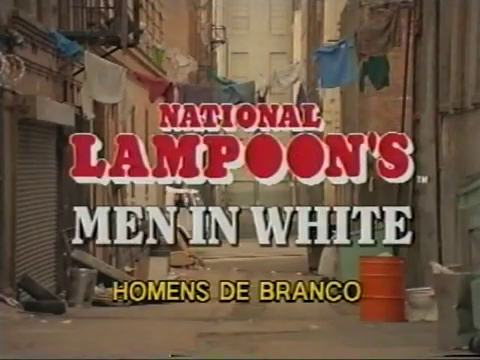
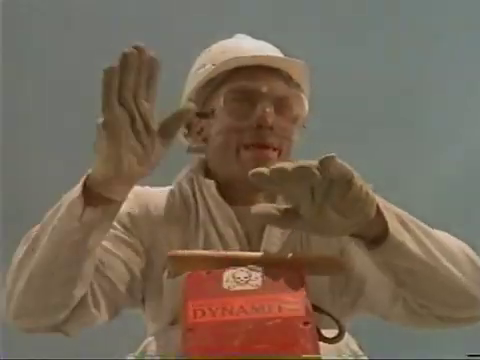
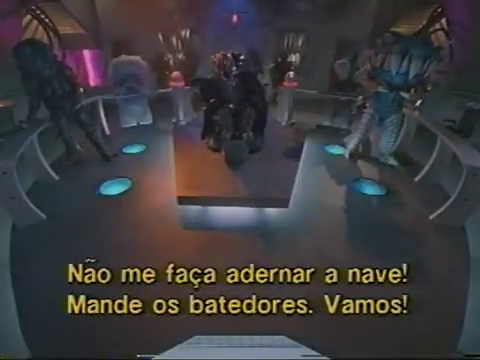
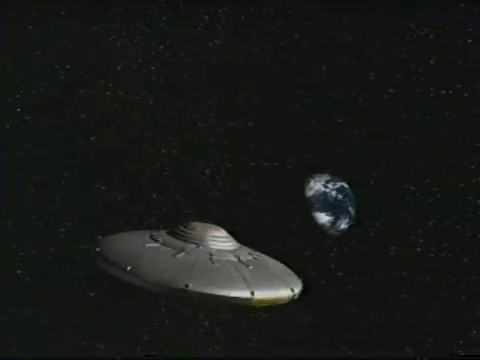
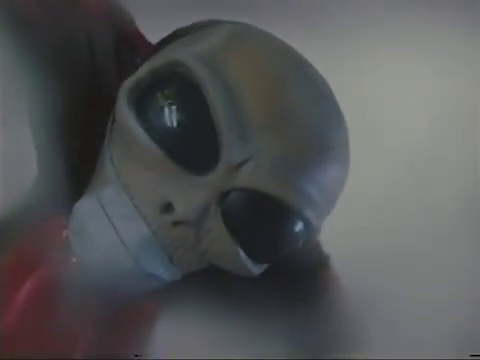
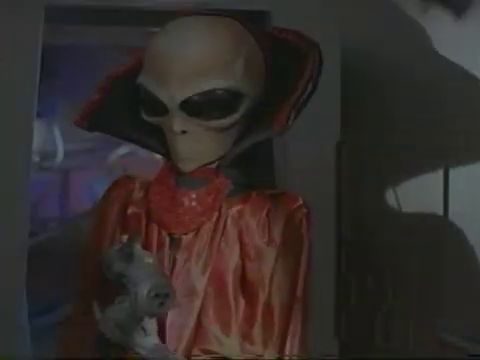
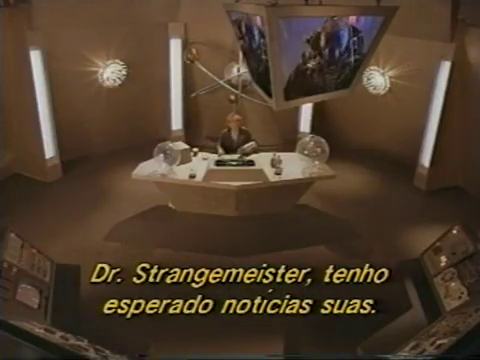
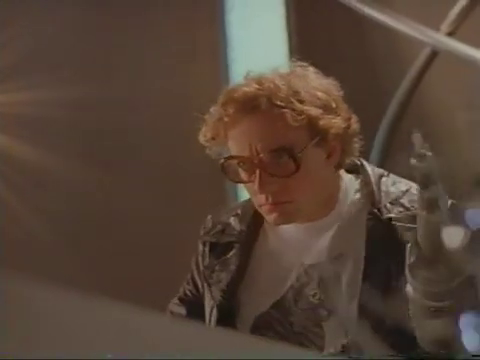
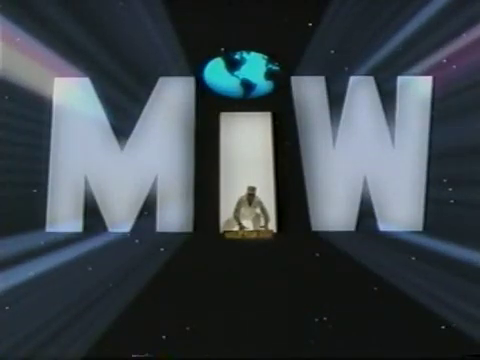
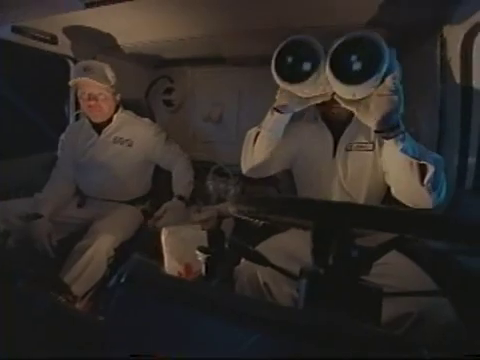
National Lampoon’s Men in White (1998)
Film review #537
Director: Scott P. Levy
SYNOPSIS: Two low-ranking garbage men are abducted by aliens that intend to launch a full-scale invasion of earth. They manage to escape, but are immediately recruited by the government to put a stop to the invasion. However, there are mysterious forces at work that do not want them to succeed…after all, who would put two garbage men in charge of saving the world?
THOUGHTS/ANALYSIS: National Lampoon’s Men in White is a 1998 sci-fi comedy film that is unsurprisingly a parody of the 1997 film Men in Black. The film centres around two garbage men, Roy DuBro and Ed Klingbottom, who are abducted by aliens led by Glaxxon, who intends to invade the Earth with his army. They manage to escape the alien’s clutches, but are almost immediately recruited by the government to stop the invasion by Dr. Strangemeister, who has secretly selected the lowest, most inept government officials to deal with the invasion and fail, since he is secretly working with them. The film is, as the title suggests, a parody of the man in Black film that was released a year earlier, but it is a very loose parody, poking fun at other science-fiction films including Independence Day. The plot is very simple, but it’s just a vehicle for all the gags and comedy, so it’s easy enough to follow. The one thing I’m not sure about is who this film is really aimed at: it has a P.G. rating, and there’s no real adult humour or language, but there’s a fair amount of references that younger viewers probably wouldn’t get. If you’re watching it as a Men in Black parody, there’s enough references throughout the film, and plenty of visual gags that, while nothing special, are still decent. There’s a fair amount of more subtle gags, such as the scenery changing through the President’s windows every scene, which is quite funny, and it reminds me of the Naked Gun films in that no one ever references them. The mix of visual gags, fourth-wall breaking, and slapstick humour is a lot of different techniques that makes threading the film as a whole together problematic; but again, as it’s a comedy-parody film, you can probably just enjoy it for the different gags. Having the National Lampoon’s title attached to it also suggests it would be targeted for an older audience as many of the films are, but I don’t think this is meant to be the case.
The film was produced by Saban International, who most notably do the Power Rangers series, and the aliens and effects definitely have that look and feel about them. Karim Prince, who plays Roy DuBro, also starred in one of the Power Rangers series. There’s a decent mix of CG that doesn’t look too bad for the time, and practical effects that work fairly well. Overall, the film is a mish-mash of different gags that doesn’t really tie together too well, but has a few good jokes (like the scene which makes fun of the Men in Black “neuralyser” that wipes memories). I think the cast is decent enough (apart from the lazy German stereotype of Dr. Strangemeister), but they’re not given too much to do other than delivering bad jokes. It’s not a gripping film, and there’s very little of substance, But I guess for a family film there’s different references and humours for different viewers so I suppose that’s good? I’m not sure anyone who hasn’t watched Men in Black or Independence Day or the like will really appreciate or enjoy it, and it’s references make it a dated film that diminish the humour of the film to modern viewers.
-
#528 – The Three Fantastic Supermen (1967)
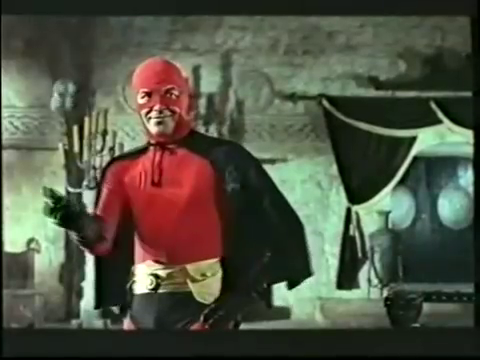
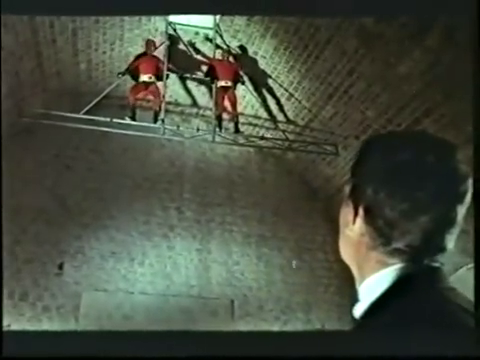
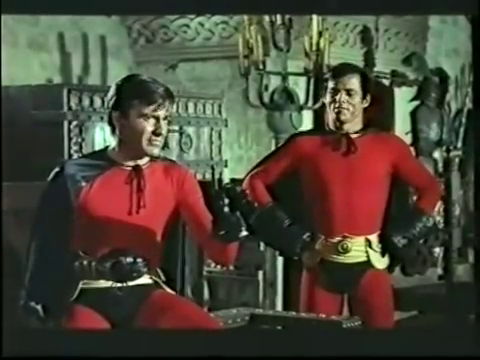
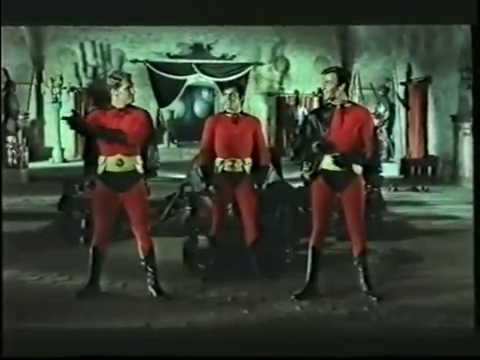
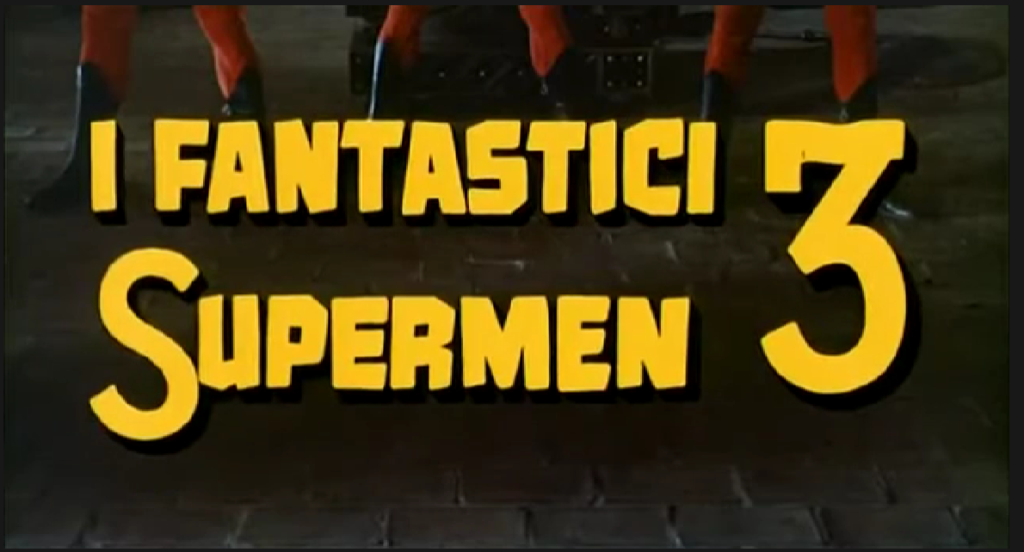
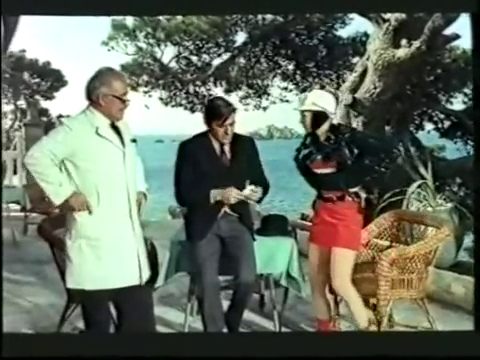
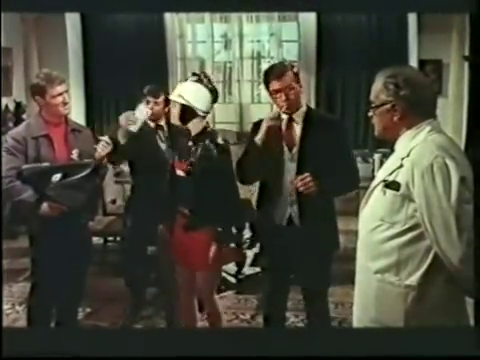
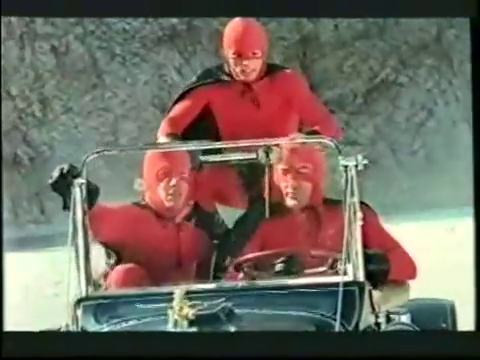
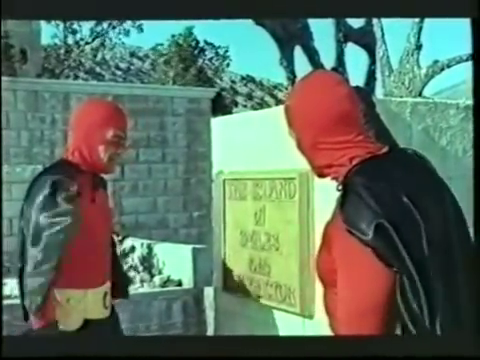
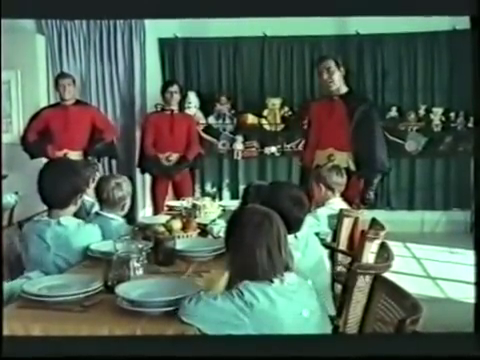
The Three Fantastic Supermen (1967)
Film review # 528
Director: Gianfranco Parolini
SYNOPSIS: FBI agent Brad hires two “supermen” who fight crime in their bullet-proof suits. The three of them join forces to become the “three fantastic supermen,” to investigate an evil plot concerning counterfeit money and bad guys turning people into precious jewels…
THOUGHTS/ANALYSIS: The Three Fantastic Supermen is a 1967 film. The film opens up with FBI agent Brad testing two superhero crimefighters, Tony and Nick, to see if they are up to joining forces. The two pass the test, and the three work together to investigate a counterfeit money ring and an evil scheme. The film is very much one of the many, many comedy spy films that parody the likes of James Bond-style films, and were especially in abundance in Italy at the time. It also has this superhero element too, with the characters dressing in skin-tight spandex and capes that serve as “bullet-proof suits.” The plot of the film is pretty standard for a spy film parody, but it at least has direction and some twists, with the somewhat uneasy alliance between the FBI and the two vigilante heroes leading to some conflict between them. The main aspect of the film is the comedy though, so everything is done in a silly, slapstick way. Any sense of peril is faced by Tony’s cheeky smile, and Nick’s expressive facial expressions and motion (accentuated by the fact he is mute). Things get even more silly when a machine that turns people into precious jewels gets introduced, as well as the machine eventually being able to clone people, but it also gets a bit sinister, when a class of schoolkids are kidnapped and nearly killed (the cloning machine works properly on children, but not adults apparently). Regardless, it’s a standard bit of comedy and parody, with plenty of scantily-clad women and chauvinism to appeal to its young male target audience.
The three main characters, Tony, Brad and Nick are different enough to make them distinguishable and interesting: as mentioned, Brad is the straight-laced FBI agent who has an uneasy alliance with the other two, although this typically ends with them playing practical jokes on him as he tries to get their secrets from them. Tony is the suave cheeky chap who laughs off any threats, and Nick as the expressive mute gives the scenes a different kind of energy. The supporting cast is a fairly typical bunch, with the evil criminal mastermind, the scientist, and his attractive daughter who serves as the love interest, so it’s unremarkable, but it has the staples of the films it is attempting to parody. The three “fantastic supermen” are also played by trained acrobats, so they can pull off some good stunts and performances, which again give the scenes a unique energy and appeal. There’s also plenty of props and variety in the scenes to make it feel busy and engaging, so while it’s a bit low budget and all over the place, it is still entertaining, although the music consisting of one of about three pieces of music played every other minute does get annoying quite fast. Overall though, The Three Fantastic Supermen is a very typical spy comedy of the time, with the added superhero element adding in a bit of a twist, and the acrobatics giving the stunts a bit more energy. It’s nothing too special or memorable, but it was apparently successful enough to warrant a number of sequels, which we will have to look at at some point…
